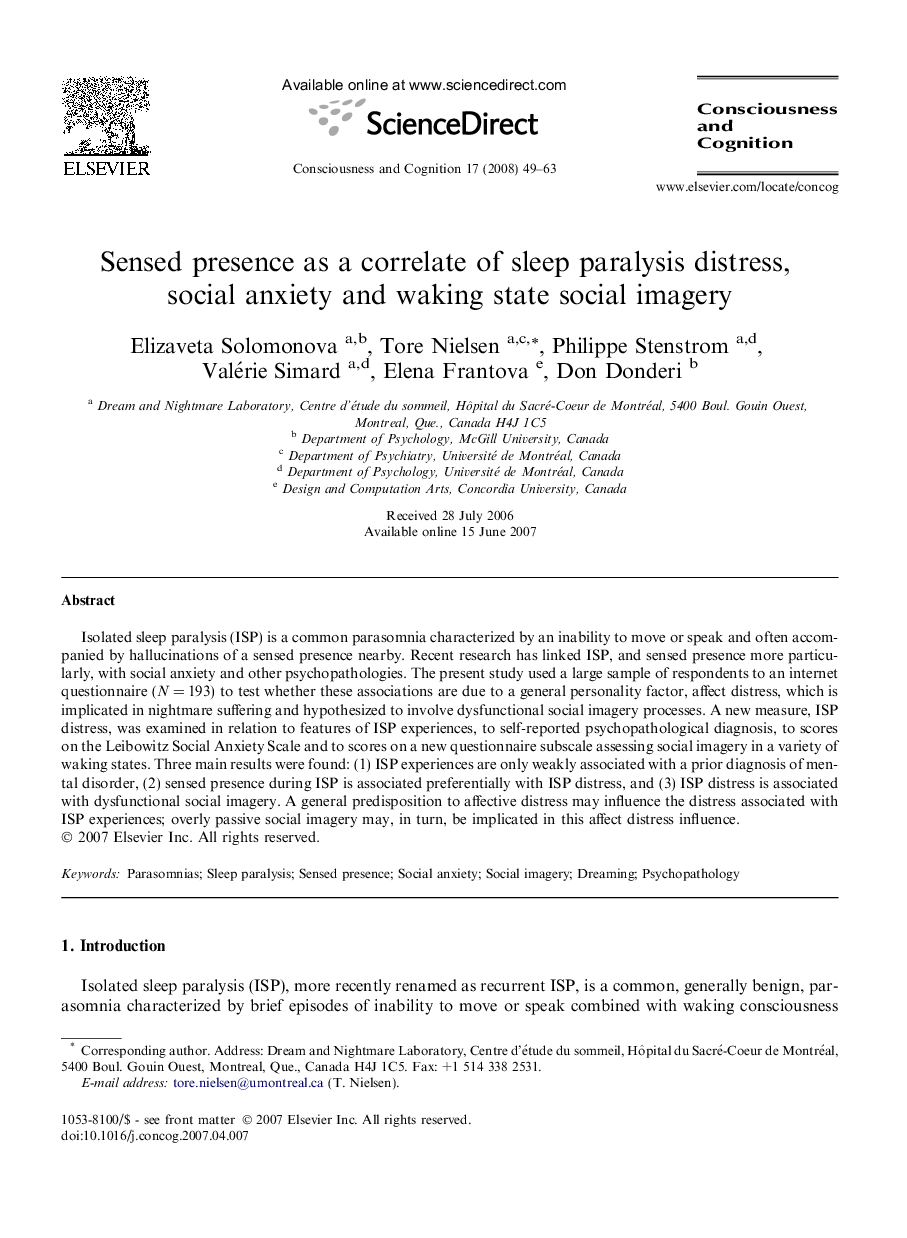| Article ID | Journal | Published Year | Pages | File Type |
|---|---|---|---|---|
| 928083 | Consciousness and Cognition | 2008 | 15 Pages |
Isolated sleep paralysis (ISP) is a common parasomnia characterized by an inability to move or speak and often accompanied by hallucinations of a sensed presence nearby. Recent research has linked ISP, and sensed presence more particularly, with social anxiety and other psychopathologies. The present study used a large sample of respondents to an internet questionnaire (N = 193) to test whether these associations are due to a general personality factor, affect distress, which is implicated in nightmare suffering and hypothesized to involve dysfunctional social imagery processes. A new measure, ISP distress, was examined in relation to features of ISP experiences, to self-reported psychopathological diagnosis, to scores on the Leibowitz Social Anxiety Scale and to scores on a new questionnaire subscale assessing social imagery in a variety of waking states. Three main results were found: (1) ISP experiences are only weakly associated with a prior diagnosis of mental disorder, (2) sensed presence during ISP is associated preferentially with ISP distress, and (3) ISP distress is associated with dysfunctional social imagery. A general predisposition to affective distress may influence the distress associated with ISP experiences; overly passive social imagery may, in turn, be implicated in this affect distress influence.
